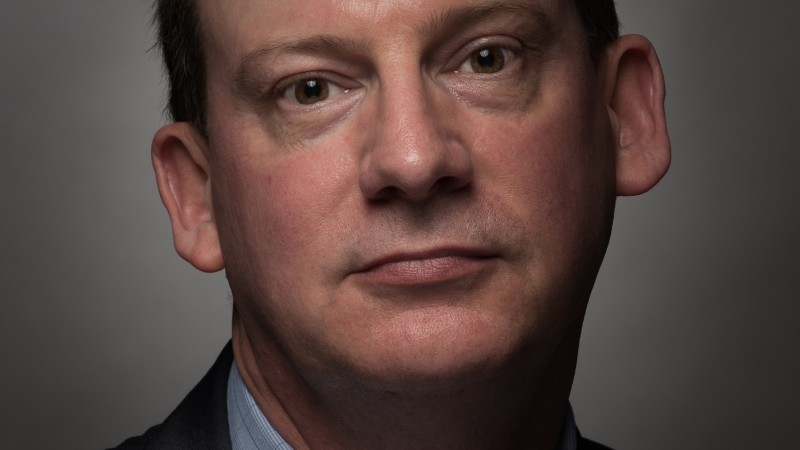
By Lynne Heffley
A highly successful lawyer in the Dallas area, Stephen D. Wilson (MFA ’89) is a partner at international law firm Locke Lord with a practice that includes intellectual property and anti-trust law. This may not have been the path that Wilson envisioned as a graduate student at the USC School of Dramatic Arts, but the skills that he acquired there have not only proven transferable, but deeply relevant to his legal career.
And not just in regard to “being able to stand in front of a group of people and make yourself heard, direct the focus…and make it dynamic and interesting,” Wilson says. “Those are all things you learn on stage. The more fundamental skill is understanding people and their problems and approaching those empathetically, sympathetically.”
As “a service brat” who lived all over the U.S. and Europe while growing up, Wilson found his interest in theatre first kindled as a third grader in Rome when a classmate “got cold feet” on the eve of a production of Little Red Riding Hood and Wilson stepped into the role. He came to USC’s MFA program on a full scholarship after his graduation from the University of Virginia with a double major in theatre and English literature.
Five years after earning his theatre degree, he reconsidered his career options and opted for law school, inspired by another childhood interest: His grandfather’s experiences as a trial lawyer and judge in West Virginia.
“I had read his books as a child — he self-published books about his legal practice — so I had some idea about this profession. I also thought the skill set would be transferable.”
So it turned out. False advertising is one area of his practice that Wilson views in some ways through the lens of his theatre training. “Just understanding things that make an impact: color and rhythm and innuendo. I don’t think you have to have had a drama degree to see that,” he says, “but it certainly doesn’t hurt to have been immersed in that world.”
When it comes to the deeper understanding of human interaction that is “applicable to any career,” Wilson credits USC Associate Dean of Academic Affairs and Stanislavsky expert Professor Sharon Carnicke, and former theatre faculty member Steven Book (author of Book on Acting, Improvisation Technique for the Professional Actor in Film, Theater & Television) as major influences. Carnicke, for whom Wilson was a teaching assistant, had just embarked then on what would become her ground-breaking work, now in its second edition: Stanislavsky in Focus: An Acting Master for the 21st Century.
“ ‘Getting outside yourself’ was Sharon’s understanding of Stanislavsky,” Wilson says, “and it was Steven’s approach to improvisation.” Rather than viewing acting as “this sort of inward looking craft, it was about imagining the character and getting completely outside of yourself as much as possible,” he says. “It was about understanding ‘the other’ in every way that you could.”
Carnicke, who stays in touch with many of her former students, remembers Wilson’s curiosity about “the intellectual underpinnings” of theatre as an art and in its practice, and his interest in understanding “the quality of human interaction,” she says.
“Steve has often told me that the idea of getting to know that other person from a kind of imaginative internal place is invaluable to arguing a case on behalf of that person,” she says. “If you can see the world from the other guy’s perspective, be that the protagonist or the antagonist, then you understand how the interaction works.”
“That’s always been my approach,” Wilson says. “It’s also a kind of logic that I like to think of as analogic, as in analogy. If you think about it, to some degree, all of our thinking is analogical. That’s what you’re doing on the stage — explaining to the audience that ‘this is what it’s like to be a king whose wife died,’ or whatever” — and that is useful for understanding problems and for communicating ideas to others, “whether it be your immediate co-workers, an executive committee in some manufacturing business…or a jury at trial.”
The emphasis in recent years on the value of mathematics and science has come at a cost, says Wilson, whose life also includes pro bono work and volunteer time with Habitat for Humanity. “I don’t disagree with that line of thinking, but I think it grossly undervalues the liberal arts. And I think people often don’t think of a drama degree as being a serious academic pursuit, and it is. It’s not just applicable to other endeavors. It can be applicable to how you live your life.”